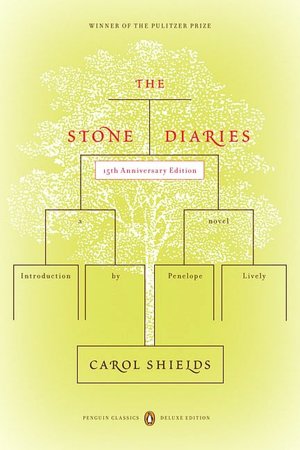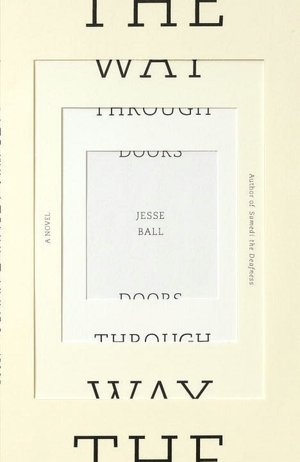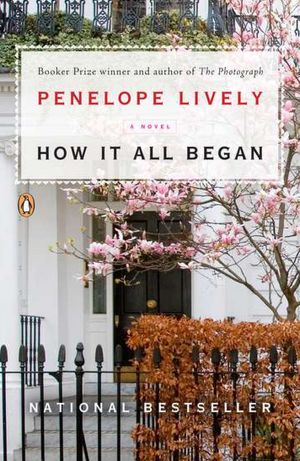Joy Netanya Thompson is a freelance writer based in Pasadena, California. Born and raised in Los Angeles, she holds a bachelor’s degree in biblical studies and recently finished her master’s degree in theology and the arts at Fuller Theological Seminary. Joy loves to travel, and spent extended amounts of time in Australia, Mexico, Norway, and Germany. Besides daydreaming about her next travel destination, Joy also spends much of her time relishing novels now that her graduate studies are complete, learning how to cook a meal in under an hour, and riding bikes with her husband Robert. She writes at her hopefully-soon-to-be-revived blog, Eeper (www.netanya.wordpress.com). Joy Netanya Thompson

The Gift of Asher Lev
by Chaim Potok
My husband and I have been devouring Chaim Potok’s books for the past few months. Our first exposure to him was about a year ago when I read My Name is Asher Lev for a class. The Gift of Asher Lev is the sequel, and focuses on the title character, a world-famous artist who started out as a child prodigy in a Hasidic community in Brooklyn. In both books, Asher struggles with his two identities—the Hasidic Jew who is loyal to his faith, family, and community, and the world-class artist who must create or die. Potok’s style is utterly mesmerizing—his are the type of books in which you become totally absorbed—and his stories are haunting, the kind you think about for days after finishing them. Reading his books, I not only feel more connected to my Jewish roots, but also to my own humanity. Over the past few months I also read The Chosen and Old Men at Midnight. They are all worth the read!
A Room Called Remember
by Frederick Buechner
I was introduced to Buechner last year through his novel Godric, which I also highly recommend. A Room Called Remember is nonfiction, a book of his uncollected pieces. It’s a hodgepodge of essays and articles, a few sermons and a few speeches. My favorites include “All’s Lost—All’s Found,” “A Room Called Remember,” and “Love.” Each piece in the collection is written in his lyrical style that sometimes includes seemingly endless sentences with all the words toppling over each other—but in the best kind of way. His insight into the human condition, and especially human spirituality, is piercingly beautiful. He is a truth teller and a wordsmith, an utterly powerful combination. I also just finished his novel Son of Laughter in which he fleshes out the story of Jacob in Genesis, with all of its scandal and betrayal and humanity; it’s also a fine work.
Becky Still, Managing Editor and Senior Writer at Fuller Theological Seminary
How It All Began
by Penelope Lively
I liked this a lot; the writing is excellent. The book follows a chain of people whose lives are all affected (some of them significantly) because one older woman, Charlotte, is mugged. Her daughter Rose must rush to her aid, which ends up setting off a chain of events for the man Rose works for, and on and on. There is interesting commentary by Charlotte about growing old and the nature of one’s individual history, how it defines us. The whole book illustrates, in a delightful way, how interconnected we are.

Stone Diaries
by Carol Shields
This book is from the early 1990s—I randomly picked it up at the library and ended up liking it quite a bit. Again, great writing. It is the fictional “autobiography” of a woman named Daisy Stone Goodwill, tracing her life from birth (1905) to death in the 1990s, through diary entries written both by her and by various people in her life. Diary entries written by different people about the same event show how much we see things through the lens of our own experience.
Grace Farag, Writer

The Way Through Doors
by Jesse Ball
My "author crush" on Jesse Ball began when I read his novella "The Early Deaths of Lubeck, Brennan, Harp, and Carr" in the Winter 2007 issue of the Paris Review. The quirky strangeness of the plot, an odd formality of style, and lightly yet sensitively drawn characters hooked me right in—and at the (haunting) end of the story, I was simply, wildly jealous that I had not been given the privilege of writing it. After that I set out to read more of his work…and that's how I eventually got acquainted with his novel The Way Through Doors, which has become one of my favorite works of fiction of the past few years. I love the interwoven narratives that blend in and out of each other, and how you never know when and where one is going to begin or the other end. I love the underlying romantic sensibility of the story. I love the title. I love the poetry of Ball's prose, the musical rhythms of his sentences. (It was no surprise to me to learn that Ball is also a poet.) I love that he has a character who is a "guess artist." I love that I never quite knew where Ball was going, but that there was so much pleasure in the getting there. I just plain love this book! But I won't lie--not everyone will. And that's OK. That's the beauty of literature, of any art. So many doors, so many ways through them. Here's to the unexpected journey…



